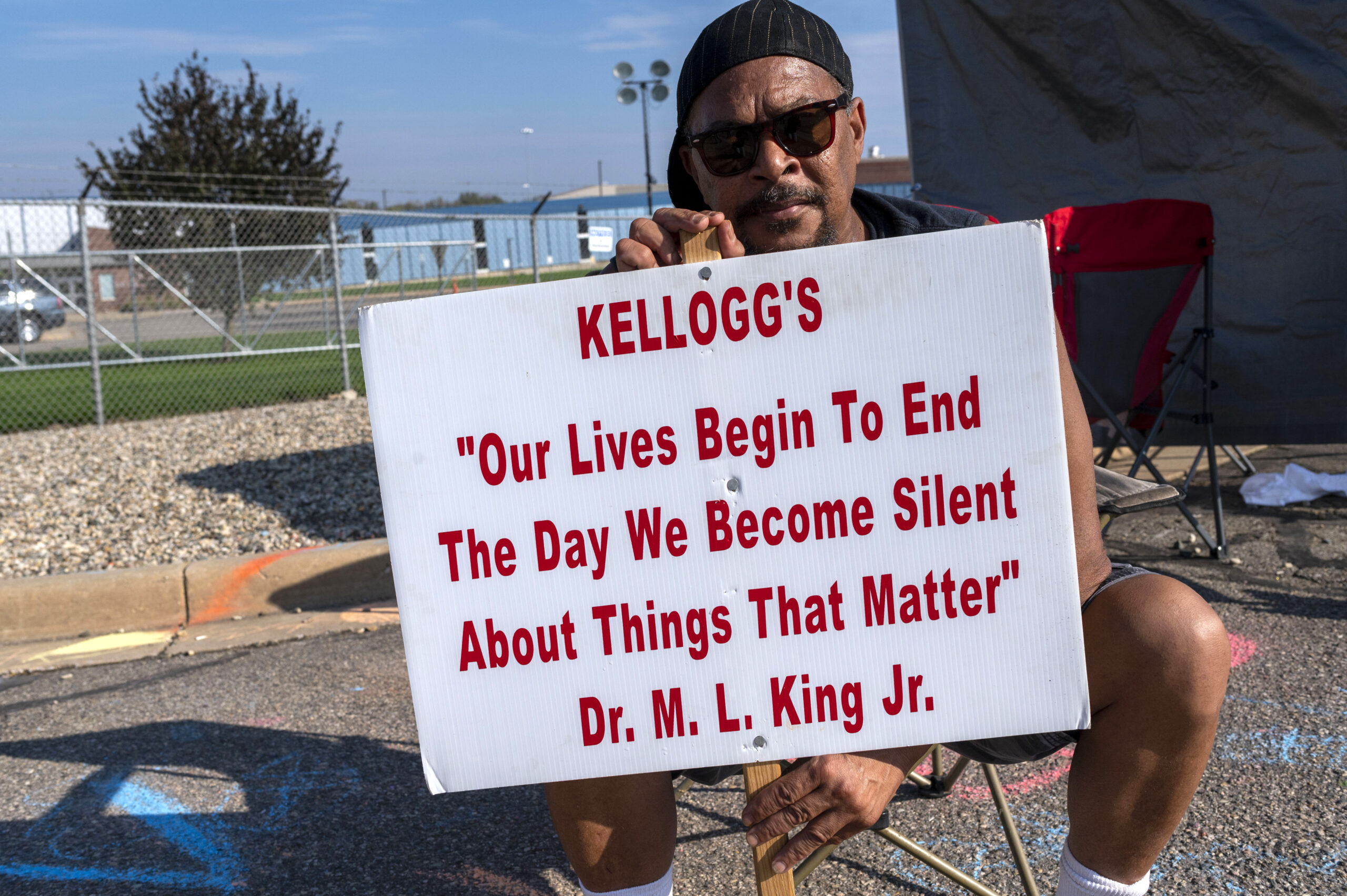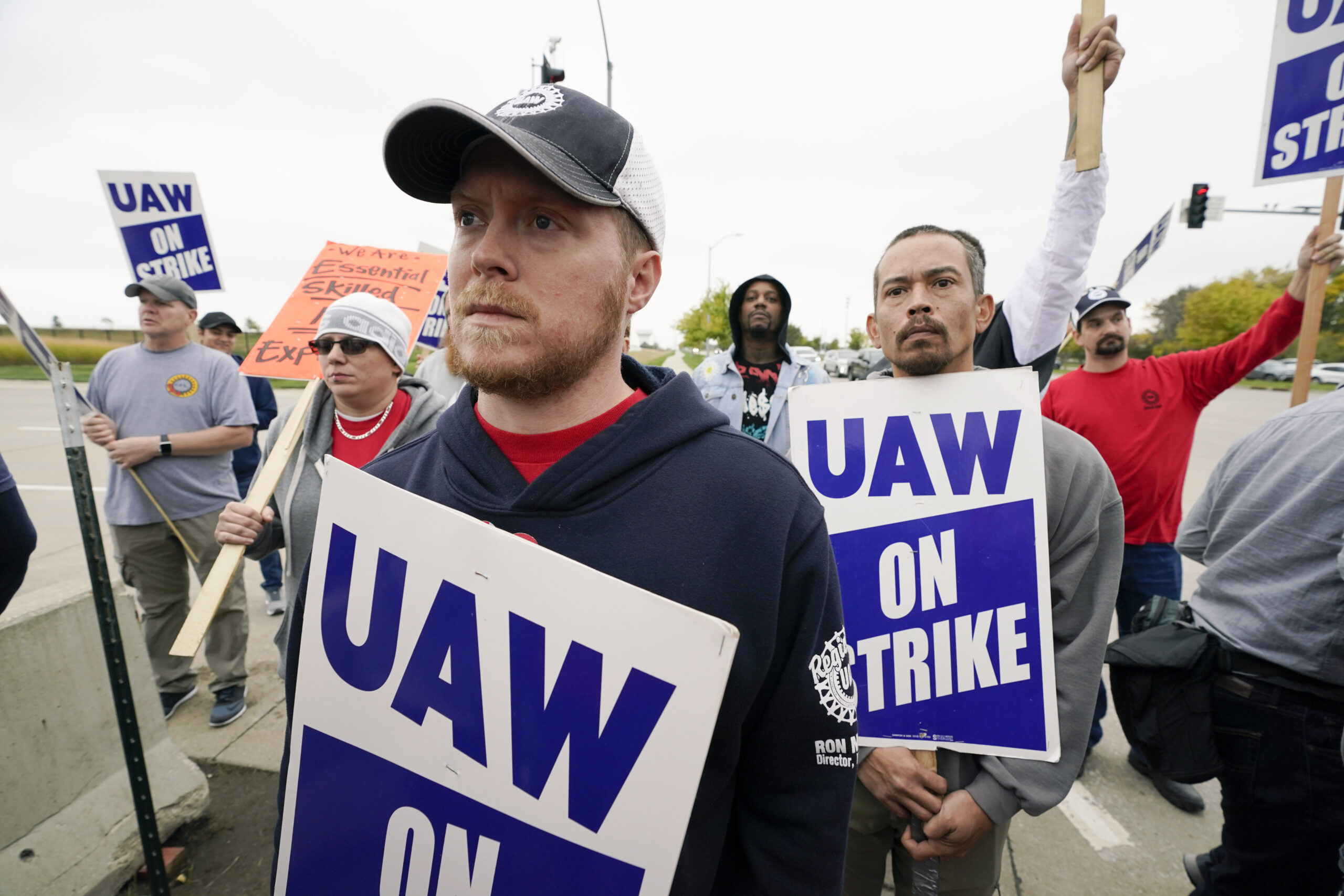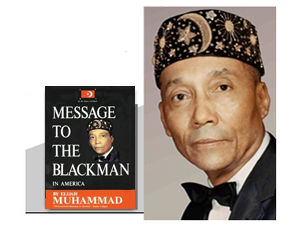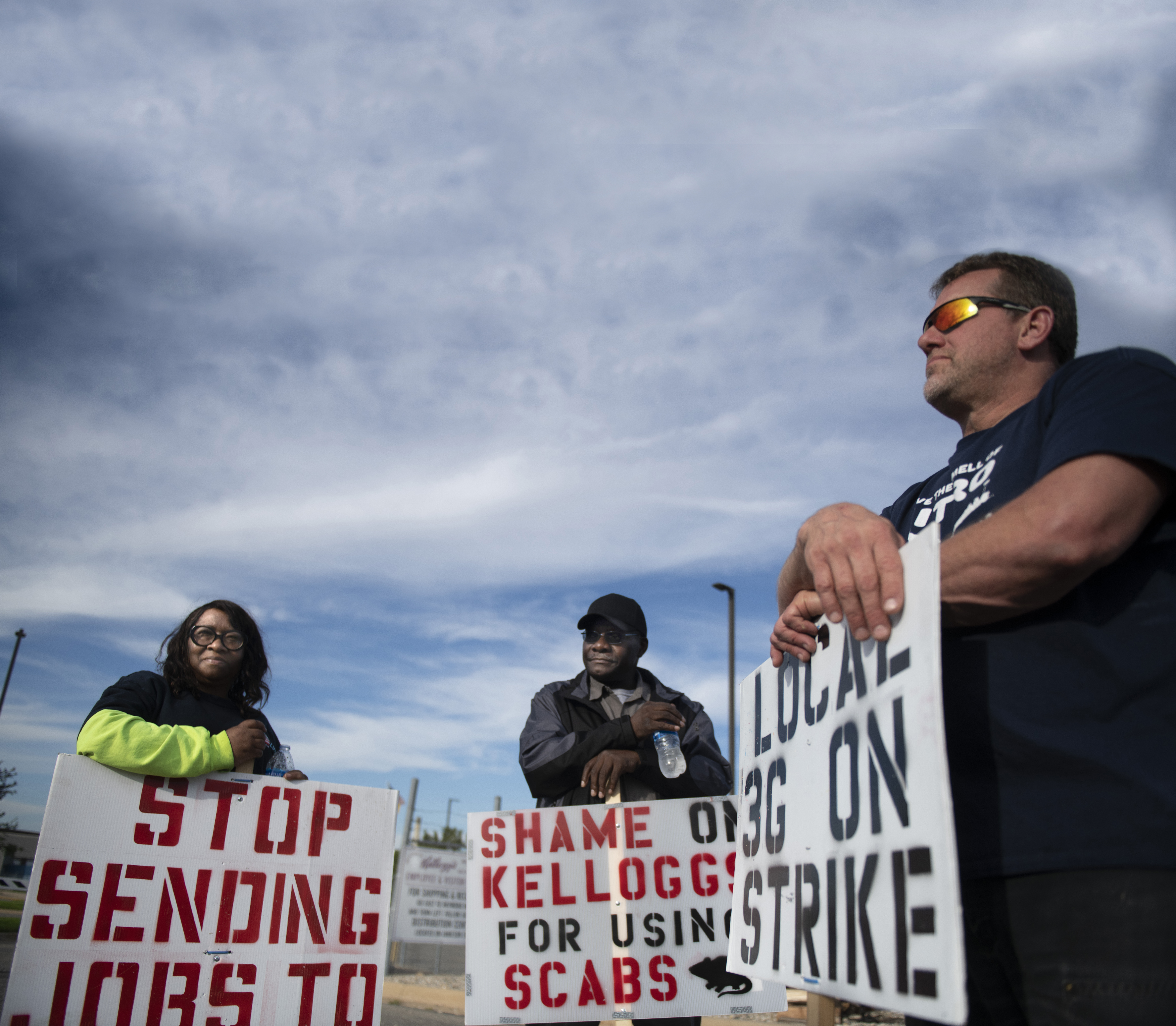by Brian E. Muhammad and Michael Z. Muhammad
Millions of American workers are quitting, striking, and refusing to accept low wages, intolerable working conditions, and too few job protections. They’ve had enough as bosses get richer and workers get poorer and lose more benefits.
A tidal wave of angry actions by U.S. workers has been described as revolutionary, militant, and unprecedented. Analysts are looking at what is driving the movement today in U.S. history and what it means for the future.
“What’s interesting about what we’re going through now, we’ve been seeing a slow but steady increase in workers’ militancy,” said Bill Fletcher, Jr., editor of GlobalAfricanWorker.com and a longtime labor activist. “It’s not just like a one-shot deal, one glorious battle. It’s like something is going on out there and it seems to be increasing in strength.”
Dr. Abdul Haleem Muhammad, student Southwest Regional Minister for the Nation of Islam based in Houston, said the country is witnessing more of the unraveling of America.
“We are watching the struggle between three institutions, big business, big labor, and big government,” observed Dr. Muhammad.
Workers, unions and their supporters have been coming together under the twitter hashtag #striketober, a term representing the uptick of strikes in October.
Messages expressing commitment to the cause were posted by everyday folks like Nate Wendt, a self-described “Semi-Broken down working man.” He posted a photo of a sign that read: “If you (steal) a dime, you’re a thief. If you (steal) a pension, you’re a CEO.”

The dissatisfied are fighting proverbial corporate Goliaths and “bloodsuckers of the poor” as the United States sees one of the largest increases of organized labor in the 21st century.
In his monumental book, “The Fall of America,” the Most Honorable Elijah Muhammad, Eternal Leader of the Nation of Islam, wrote about dissatisfaction as a catalyst for change.
“We are living in the time when dissatisfaction is 100 percent throughout the world of man and mankind,” he wrote in 1973. “Therefore, we are living among the dissatisfied persons, daily and nightly.” The Hon. Elijah Muhammad also taught 100 percent dissatisfaction brings about a 100 percent change.

With over eight million Americans unemployed, serious friction between labor and business, and a mass exodus of people exiting the work force altogether, a new paradigm appears necessary.
In “A Torchlight for America,” the Honorable Minister Louis Farrakhan of the Nation of Islam offered solutions for better relations between labor, business and government.
“We need, first of all, a new state of mind among leadership in government and the business community,” wrote Minister Farrakhan in a chapter called “Rebuilding the Economy.”
“A new state of mind that sees the right to work as central to having a free, just, and equitable society—as central to promoting family values,” he continued. The book was published in 1993.
The Minister said government and private business should work together to ensure every American has a job. He advocated retraining programs, partnering businesses with the urban poor and working classes, and promotion of employee ownership and profit-sharing programs.
Blacks, the Muslim minister warned, must rethink the old “slave master-slave” relationship.
“We know that former generations of Whites are responsible for putting Black people in our current condition,” said Minister Farrakhan. “However, conditions force us to think creatively to help ourselves or go down with this ailing economy.”
“By helping ourselves, we will relieve the country of some of its burdens, and we will be performing a duty imposed on us by our Creator, which is the duty to do something for ourselves,” he added.
Strikes across America
October saw a spike in U.S. workers pushing back against employers in diverse industries and professions. Workers at Kellogg’s, Kaiser Permanente, and John Deere were among a huge number of strike participants.
In early October, 1,400 workers at four Kellogg’s cereal plants represented by the Bakery, Confectionery, Tobacco Workers and Grain Millers union refused to work. Strikes also hit Frito Lay and Nabisco. That meant strikes at three Fortune 500 companies involving a union of some 65,000 members. The union called the strike in response to company demands for worker concessions. The $21.82 billion mega corporation wanted to cut health care benefits, pensions, holiday, vacation pay, cost of living raises and union jobs.

Kellog wanted a two-tier system where new hires would make less money, have higher health insurance payments and not earn a pension. “The company is trying to divide the workforce by asking the current workforce to sell out the next generation of Kellogg workers,” said the union.
Workers said they put in long hours throughout the coronavirus crisis and don’t want to give up anything.
“People are striking because they are not making enough money,” commented Dr. Julianne Malveaux, an economist and dean of the College of Ethnic Studies at California State Los Angeles. The last three decades worker pay has been very stagnant, she noted. What wage gains that exist mostly flowed to the highest-paid tier of workers.
The disconnect between the job market and workers’ paychecks has fueled much of the activism in states and cities around raising minimum wages.
Dr. Malveaux pointed how Amazon allowed higher paid staff to work remotely from home. Lower wage workers had to report to warehouses and other jobs in the midst of the Covid-19 pandemic and complained about a lack of protection and a lack of pay for their added risks.
“God has intervened using Covid-19 as a pestilence from heaven and it has contributed to the unraveling of America,” said Dr. Haleem Muhammad.
The intensity of current events also points to the continued problem of millions of Black people who are unwanted, denied and suffering inside of the United States. “America is going through birth pangs right now because it’s pregnant with a nation within a nation that eventually will have to separate from her,” said Dr. Haleem Muhammad. The Nation of Islam has long taught that America cannot provide jobs for her own millions of unemployed, not to mention the Black children of her former slaves. That, and other factors, necessitate separation in an independent state or territory, where Blacks can go for self.
Dr. Malveaux said the worker struggle is not only about more money, but better conditions at work. Striking nurses in Northern California are fighting for longer breaks, she noted.
With the coronavirus pandemic, workers have emerged in an advantageous position, according to Dr. Malveaux.
America is experiencing a shortage of labor as the pandemic had led many to reconsider how, where and how much they want to work.
“Labor shortages mean that employers should be doing whatever they can to get good workers … and keep them,” said the economist. While one can’t walk through retail districts in cities and not see an abundance of “help wanted” signs, “help wanted on what terms?” asked Dr. Malveaux.
She reasoned if an employer is willing to pay $15-an-hour, that’s $30,000 a year. The poverty rate for a family of four is just over $26,000. “So, $15-an-hour may seem generous from one perspective, but if you’re a single mom with three kids, it ain’t that generous,” Dr. Malveaux declared.
“There’s two sorts of job actions that are unfolding before our eyes,” according to Mr. Fletcher. One is a quiet general strike where a lot of people quit their jobs because they are “sick and tired” of being paid so poorly, he said.
Two million women were forced out of work because of the Covid-19 pandemic, and workers are reassessing life priorities and want more flexibility, added Mr. Fletcher.
Hardest hit with job loss during the Covid-19 pandemic were Brown and Black women. Some cannot return to work, others face childcare obstacles, uncertainty about schools, and the unpredictable Covid-19 virus. Blacks have been more likely to refuse in-person work when ordered to. Many have decided to quit rather than go back, citing unwelcoming White spaces at work, feeling better working from home and seeking new ways to earn a living.
Health care, and its rising cost, is another huge issue, said Dr. Malveaux.
Mr. Fletcher said there’s no way of knowing how long the uptick of organizing will last because the labor unions have been relatively weak. “There’s been an increasing level of job action over the last several years of workers that are really feeling the crunch,” he said. “All of these things are coming together.”
More than 28,000 health care workers at 13 Southern California Kaiser Permanente hospitals and hundreds of medical centers voted overwhelmingly in October to authorize a strike. They want more pay and higher levels of staffing to reduce burnout worsened by the pandemic.
Ninety percent Deere & Co’s hourly workers, represented by the United Auto Workers Union, rejected a company contract and went on strike. The largest farm equipment maker’s 10,000 workers want higher wages and retirement benefits.
Then “The Great Resignation” had millions abandon corporate plantations for good. Many economists predicted a grim year for workers hoping to get their old jobs back, never mind getting ahead. Eighteen months later, U.S. employers are struggling to fill 10 million jobs as workers say, “No, thanks.”
Pervasive U.S. supply chain disruptions are the result primarily of labor shortages with transportation bottlenecks a much lesser factor.
U.S. imports totaled $2.3 trillion last year. Today ships continue to be delayed in their arrivals and unloading at U.S. ports, but that’s not nearly as significant a problem as the labor shortage, wrote Forbes magazine. Forbes warned the labor shortage will, in the end, fuel inflation and higher prices.
Lack of economic mobility
America still suffers from an economic imbalance that makes it difficult for those stuck at the bottom to improve their status—a problem that especially haunts Black people.
“We have some of the lowest rates of upward mobility of any developed country in the world,” said Nathaniel Hendren, an associate professor of economics, who has studied intergenerational mobility and how inequality transmits across generations.
During the 2005 Millions More Movement gathering marking the tenth anniversary of the Million Man March, Minister Farrakhan, who convened both events, met with the Teamsters National Black Caucus.
During that meeting Minister Farrakhan stated the way to obtain livable wages and jobs for the unemployed is to make fundamental changes in government, including curbing military spending, according to the Workers World coverage of the meeting.
Addressing economic equality, the Minister said, “Millions More means that we are reaching for the millions who carry the rich on their backs.”
According to the Workers World, there was a mutual agreement on the plight of working people, organized and unorganized. Min. Farrakhan pointed out that while “many of us in the trade union movement are facing this onslaught from not only the corporations but the government, still the plight of those who don’t have jobs cannot be lost in all of this,” wrote Workers World. “This includes those who don’t have pensions, don’t have livable wages and medical benefits, those who want a job and can’t have one, and how those of us who do have jobs serve as buffers, superficial divisions, between the unemployed on the one hand and the corporations and the ruling class on the other.”
“Farrakhan made the point that there is a disconnection in many instances between those of us who are working and those who are not, as well as between those who have jobs that are unionized and jobs that are not unionized,” wrote Workers World.
Jennifer Bates, who spearheaded an unsuccessful drive to form a labor union for Amazon workers in Alabama, said, “I believe for so many years that companies have devalued employees into thinking that (they’re) not valuable … people have begun to stand up and say, you know what? They’re nothing without us.
“We’re not pushovers. There needs to be a change in this country, and we’re not stopping until there’s a change,” she said. “We’re still moving. We’re still on fire, and we’re not going to stop.”
Sandra Mills, former administrative director at a Philadelphia-based union for health care workers, added, “With the advent of social media workers can connect more, and they’re empowered more because of social media. With video, you can show a lot of atrocities and dangers in the workplace. On top of that, you can expose inadequate working conditions and improper management, abusive management, and those kinds of things. So that’s empowering employees because people are sticking together.”
“And during the pandemic, when everybody had to go home and shut down and pay attention, I think there was some universal messaging because everybody’s saw it. It was like you got exposed by a God. You know, every country, every nation, every religion, and nationality has duplicated a Million Man March all over the world. And some of those marches were for social freedom, and a lot of them were for economic justice.”
Ms. Mills believes the Black community will turn inward with more entrepreneurship and interdependence. “One thing not discussed concerning Black America is we have an independent economic subculture. So we’re going to go back to the basics. African Americans post-Reconstruction did very well. We had our own financial identity. We were forced to build our hospitals, schools, colleges, and universities. We had our banks and credit unions back then.”
“In his book ‘Message to the Black Man in America,’ the Honorable Elijah Muhammad told us this. He told us what to do. It’s not like we don’t have a blueprint. I think that blueprint is going to become a reality,” Ms. Mills concluded.
Dr. Nafessa Muhammad, a Lincoln University professor, agreed.
She wrote elegantly of the NOI solution in an essay, “Perceptions and Experiences in Elijah Muhammad’s Economic Program: Voices from the Pioneers.”
“As for the Black community, the solution lies in the economic program put forth by the Honorable Elijah Muhammad, the eternal leader of the Nation of Islam,” she argued.

The economic philosophy and program of Elijah Muhammad are outlined in “Message to the Blackman.” He offered a Twelve Point Program and a Three Year Economic Plan. The Twelve-Point Program outlined his practical strategy for separation and economic prosperity. It says:
1. Separate yourselves from the “slave-master”;
2. Pool your resources, education, and qualifications for independence;
3. Stop forcing yourselves into places where you are not wanted;
4. Make your own place a decent place to live;
5. Rid yourselves of the lust of wine and drink and learn to love self and kind before loving others;
6. Unite and create a future for yourself;
7. Build your own homes, schools, hospitals, and factories;
8. Do not seek to mix your blood through racial integration;
9. Stop buying expensive cars, fine clothes, and shoes before being able to live in a fine home;
10. Spend money among yourselves
11. Build an economic system among yourselves;
12. Protect your women.
In the Economic Blueprint, he urged Black Americans to:
1. Recognize the necessity for unity and group operation;
2. Pool your resources, physically as well as financially;
3. Stop wanton criticisms of everything that is Black-owned and Black-operated;
4. Keep in mind jealousy destroys from within;
5. Observe the operations of the White man. He is successful. He makes no excuses for his failures. He works in a collective manner. You do the same.
According to Dr. Nafessa Muhammad, “His program had to contain a practical component; thus, he created the Three-Year Economic Plan. Under this plan, he urged Black people to sacrifice for three years. He urged Black people in America to spend only according to their income and save money.
He stated, ‘I appeal to all Muslims, and to all the members of the original Black nation in America, to sacrifice at least five cents from each day’s pay to create an ‘Economic Savings Program’ to help fight unemployment, abominable housing, hunger, and nakedness of the 22 million Black people here in America who continue to face these problems.’”
“According to Muhammad, if Blacks followed the Three-Year Economic Plan, the money saved should be used to purchase arable land where vegetables can be grown, and cattle can be raised. He also encouraged Blacks to purchase real estate and buy timberland. The timber could be used to build homes for poor Blacks. The purchase of clay land could be used to make brick houses, which, upon completion, could be sold at affordable prices to indigent people in Black communities,” she noted.













